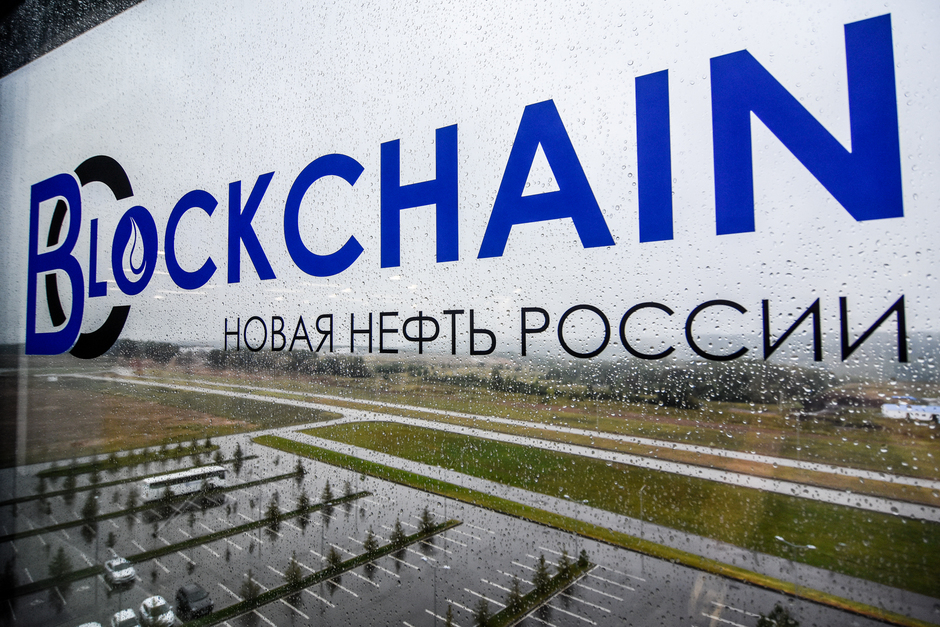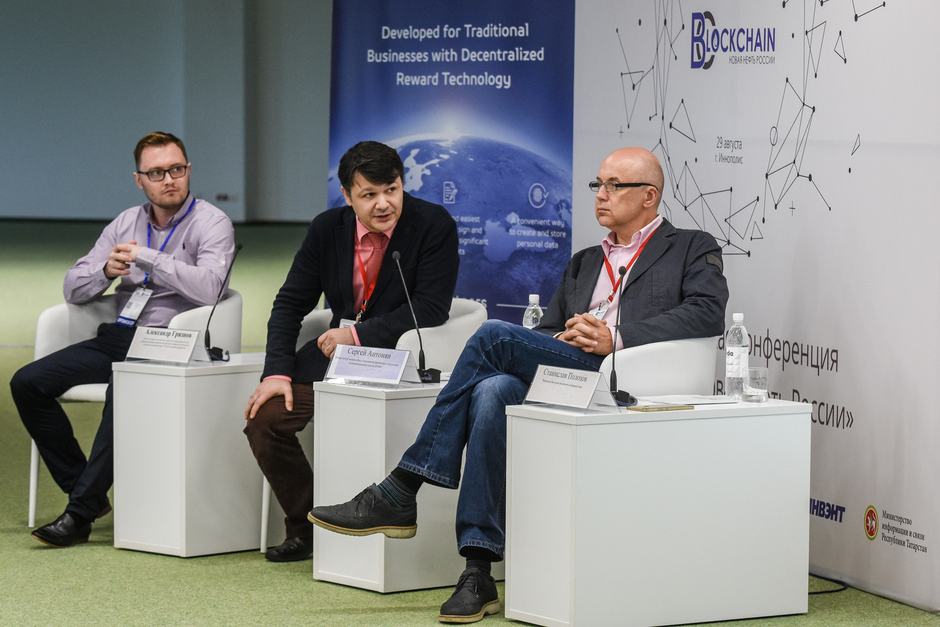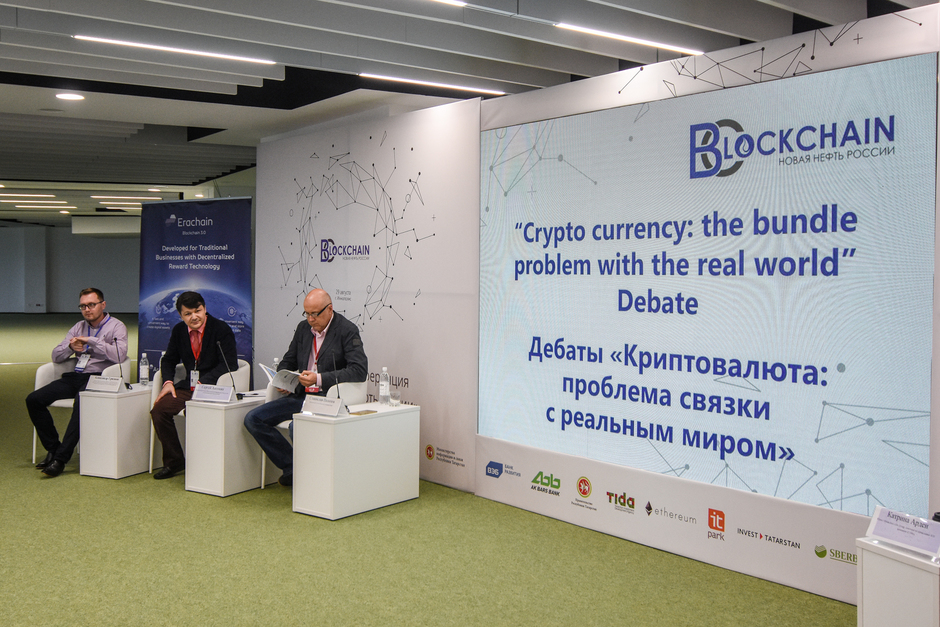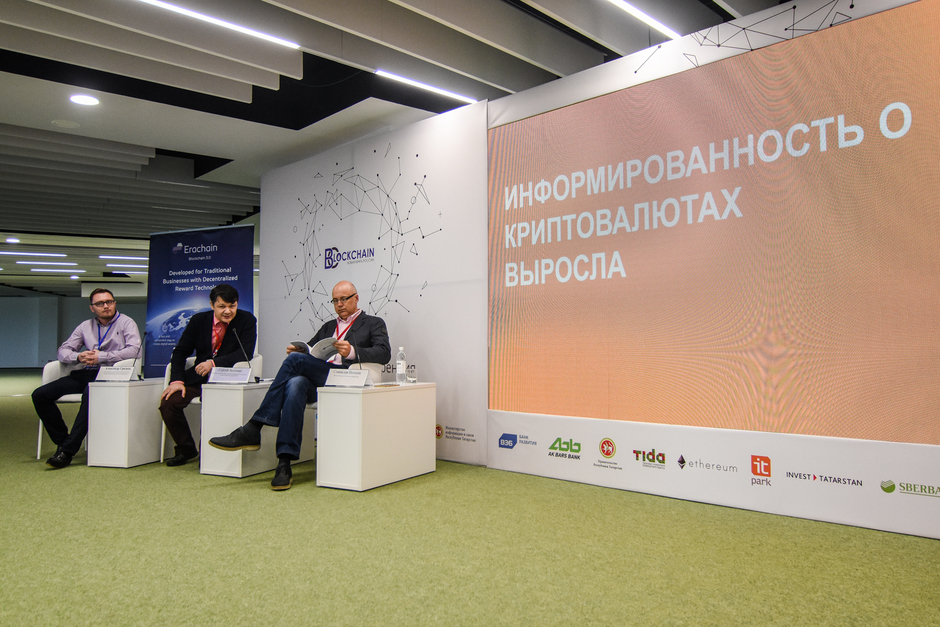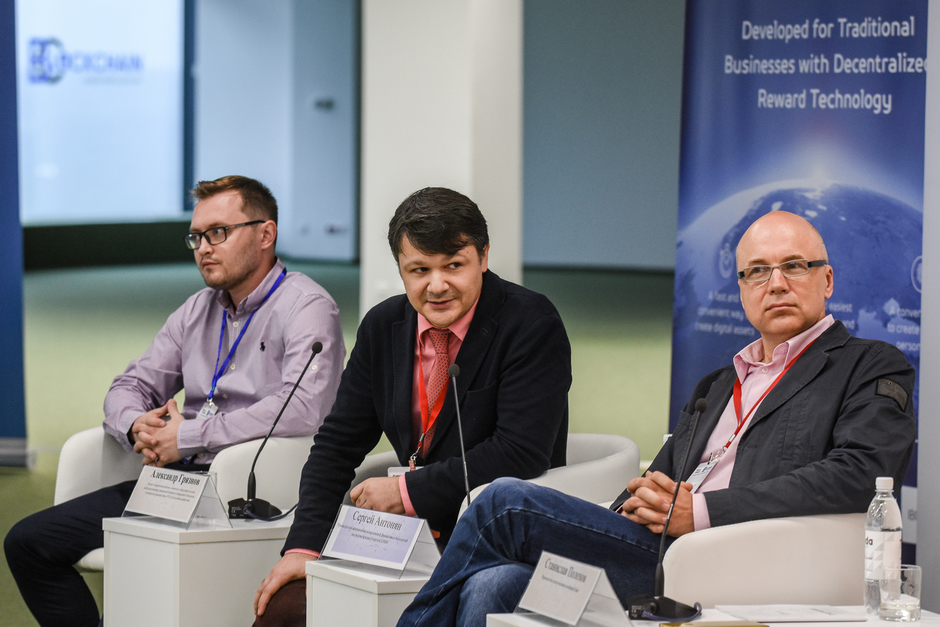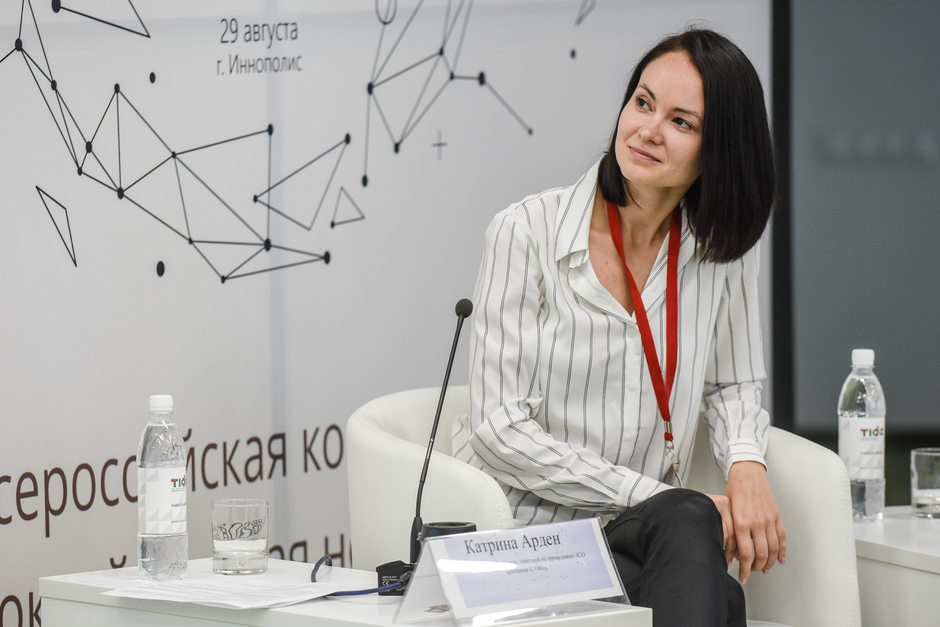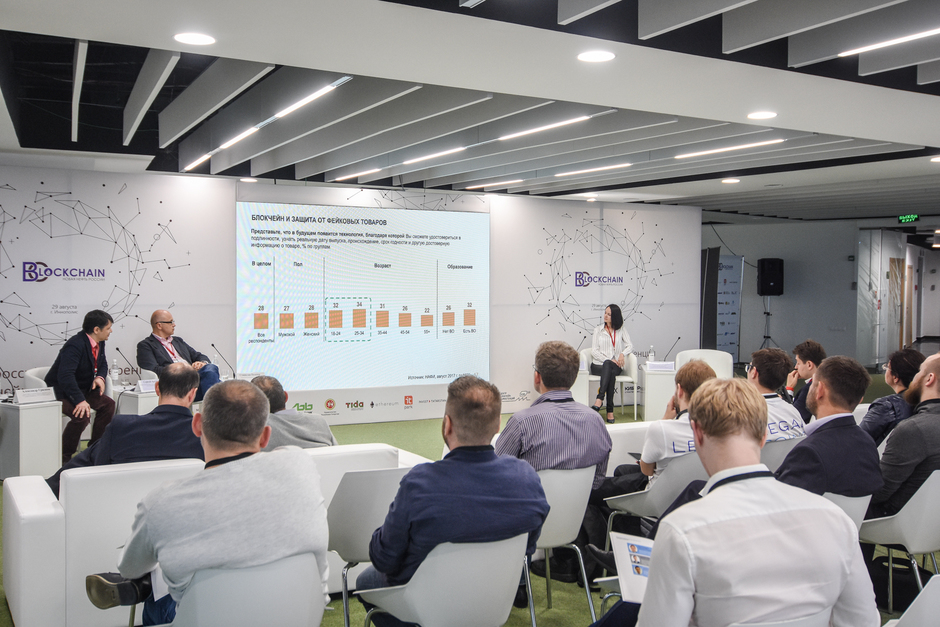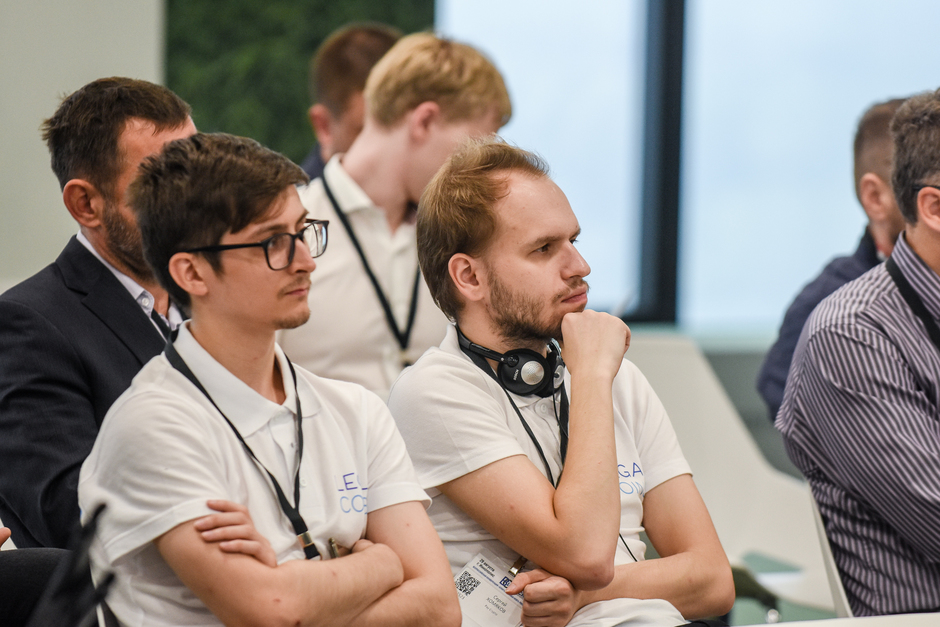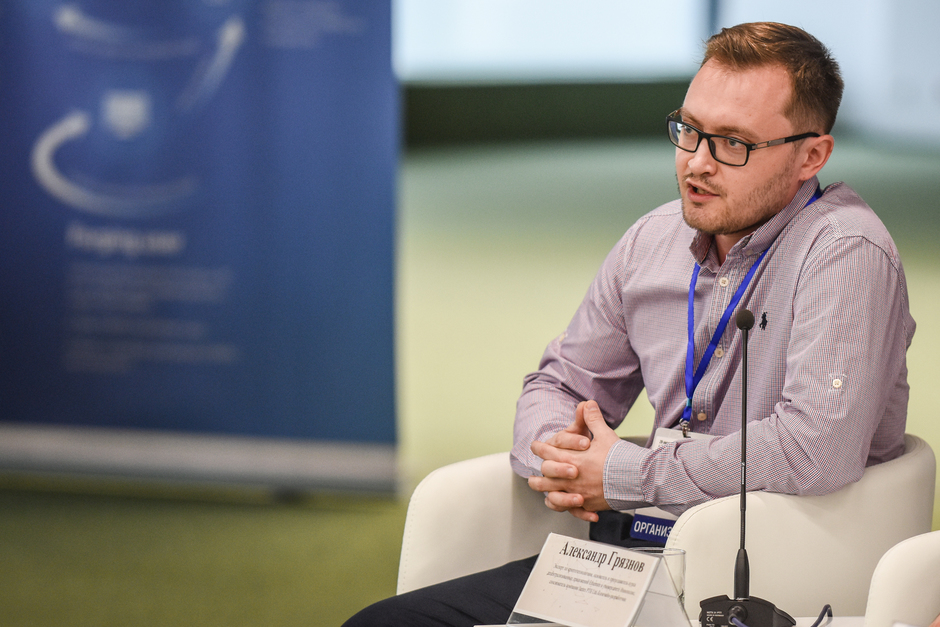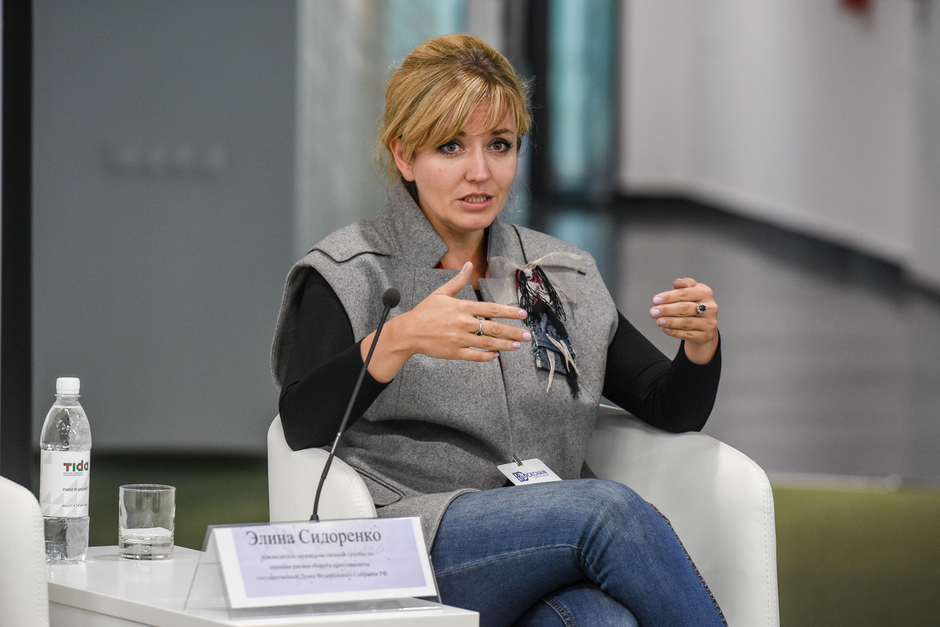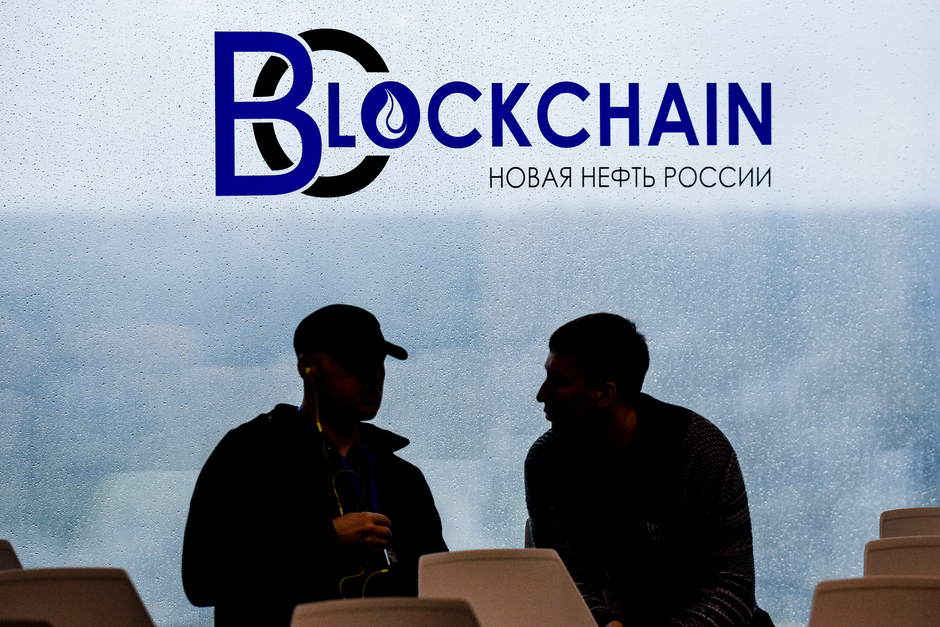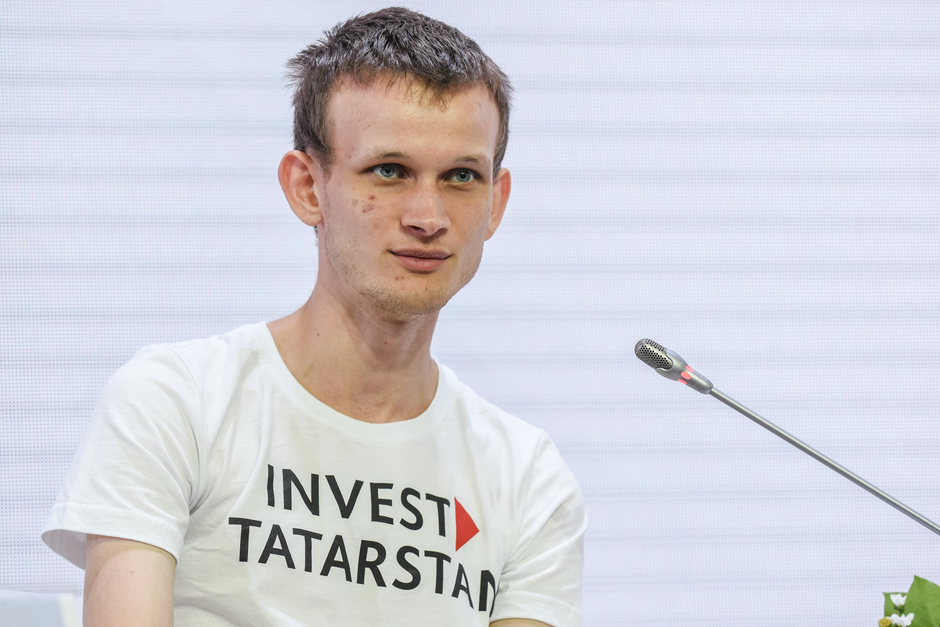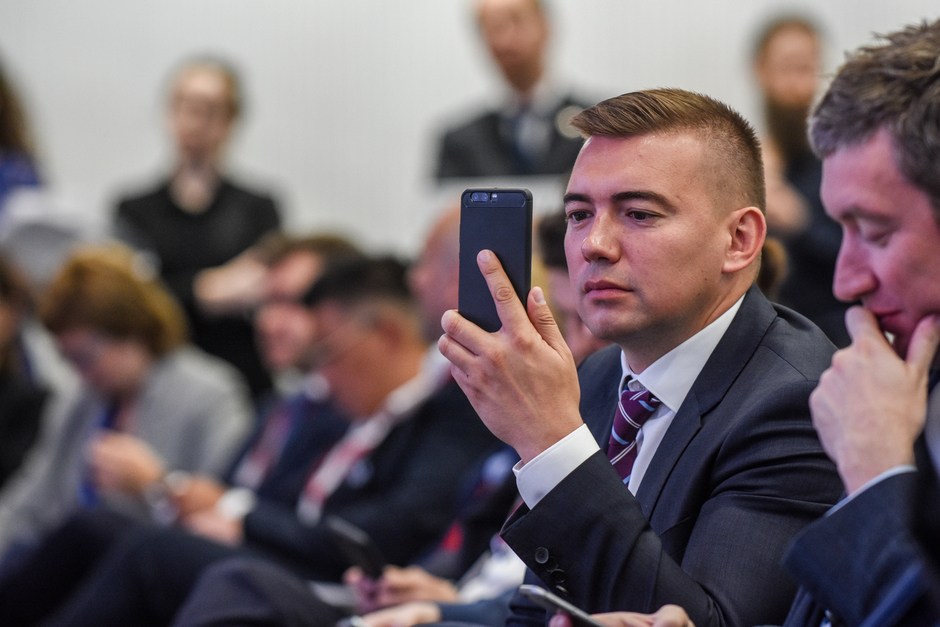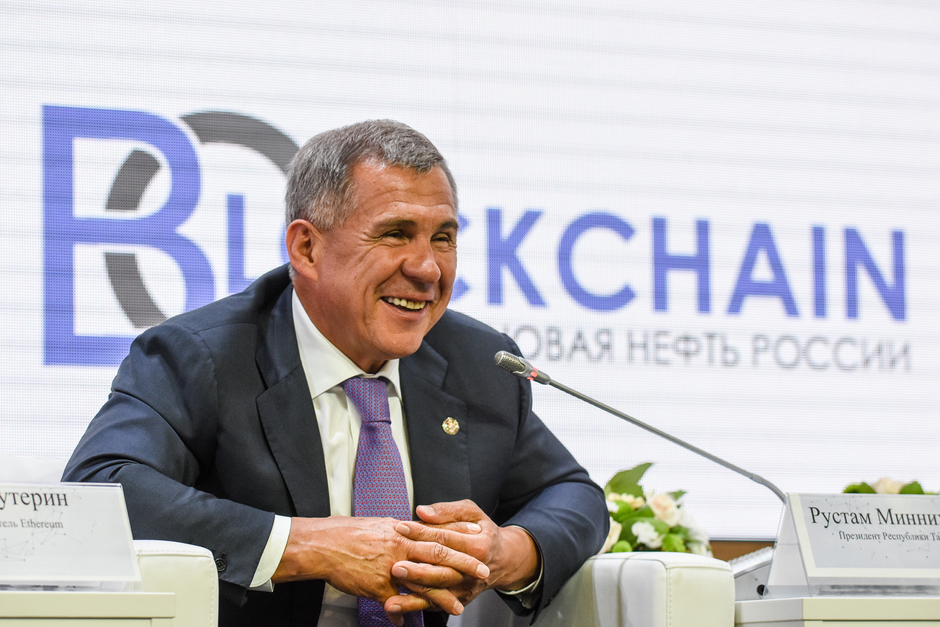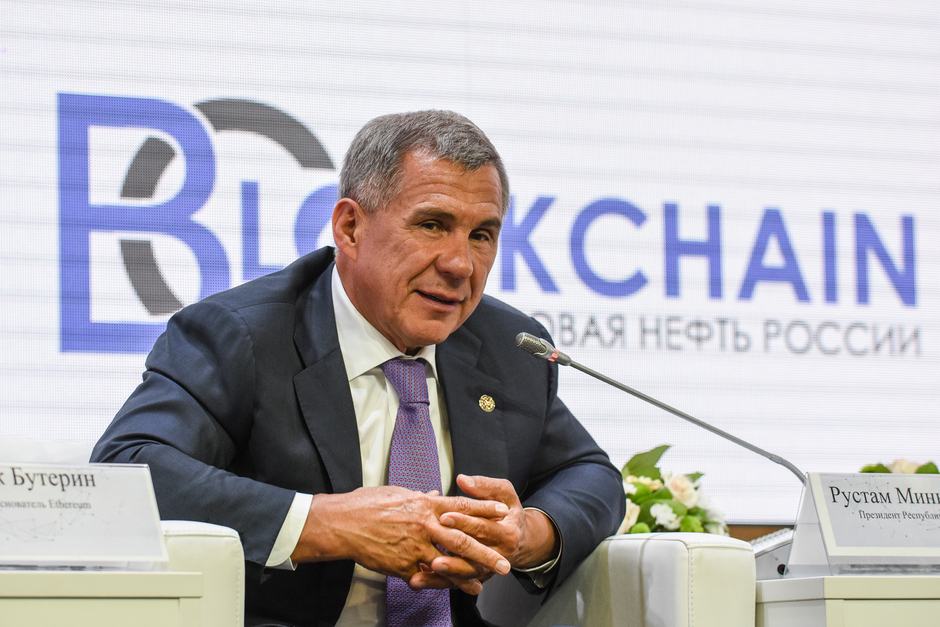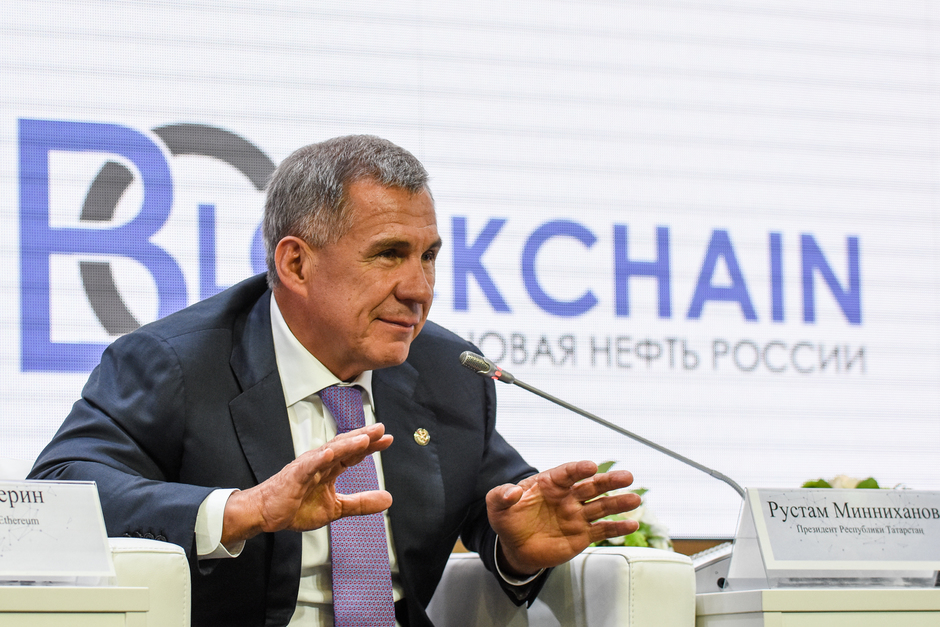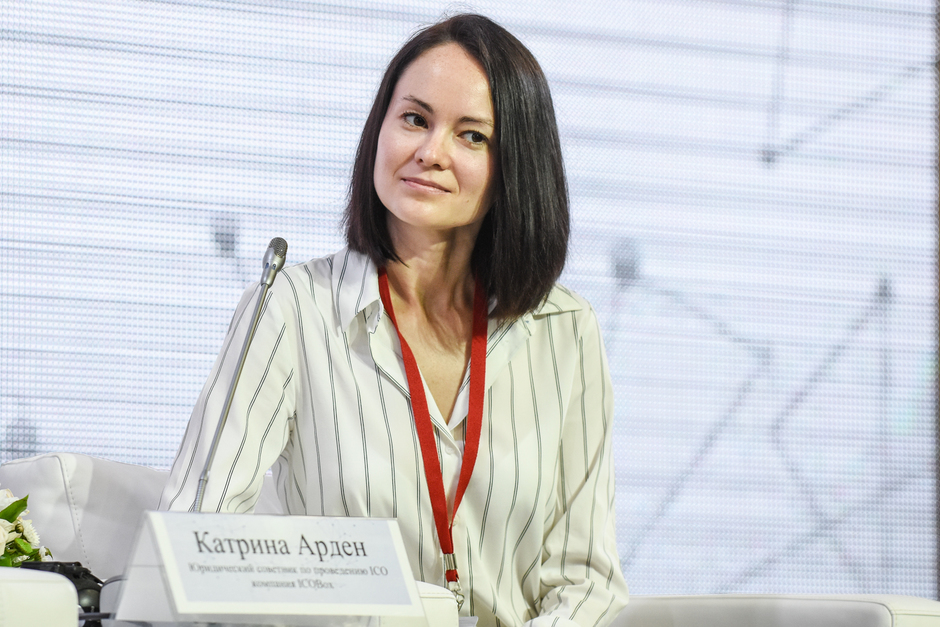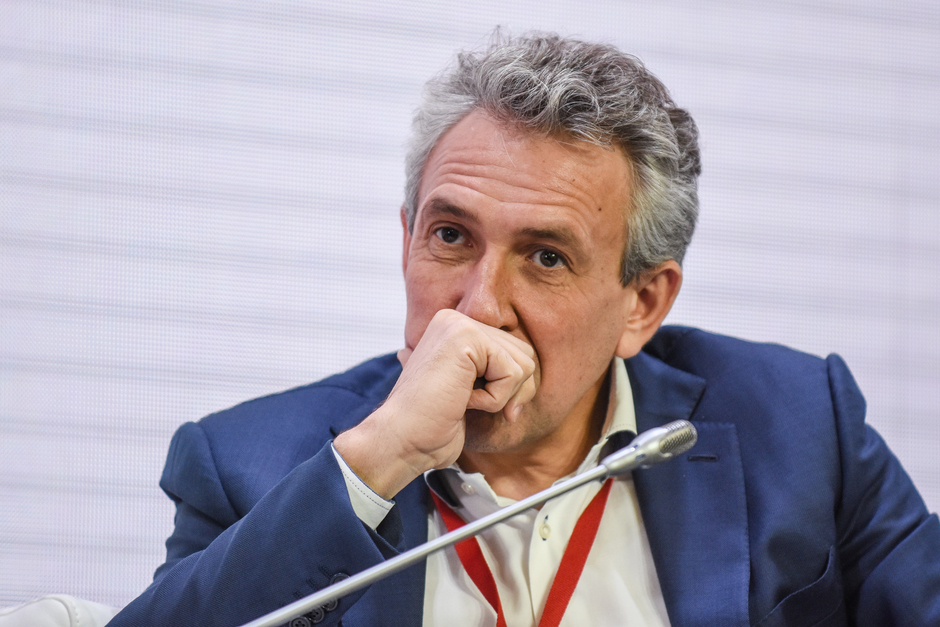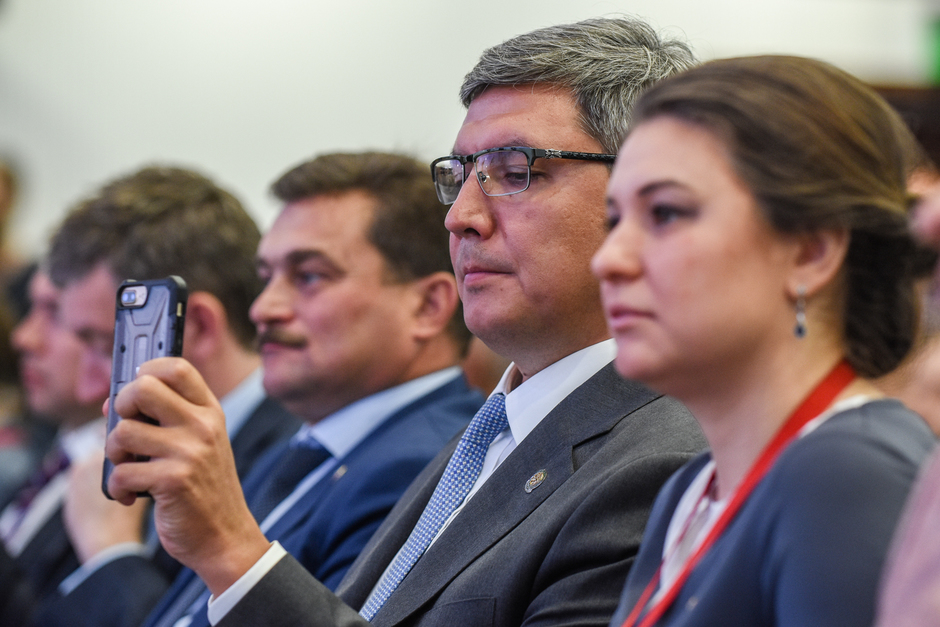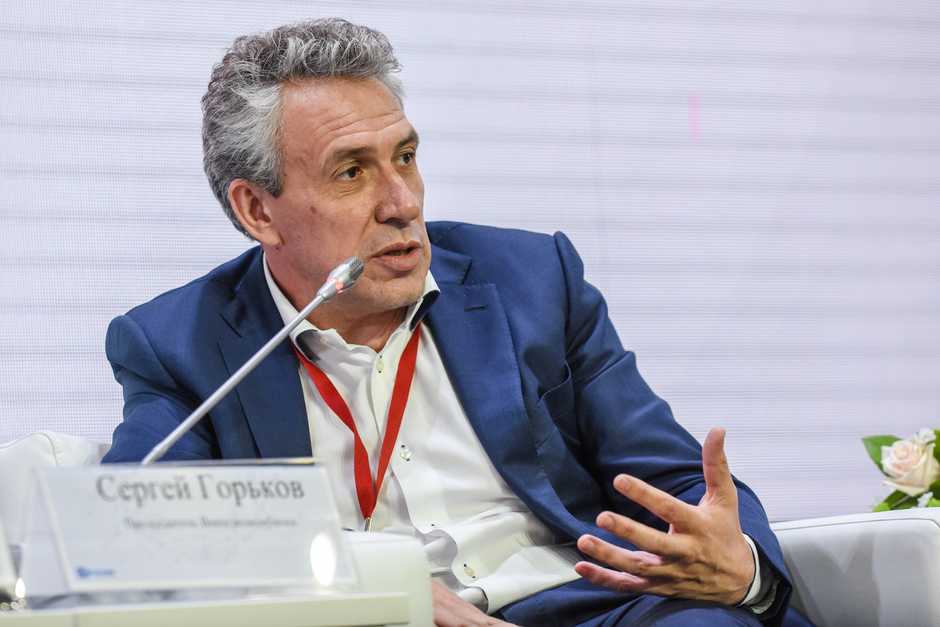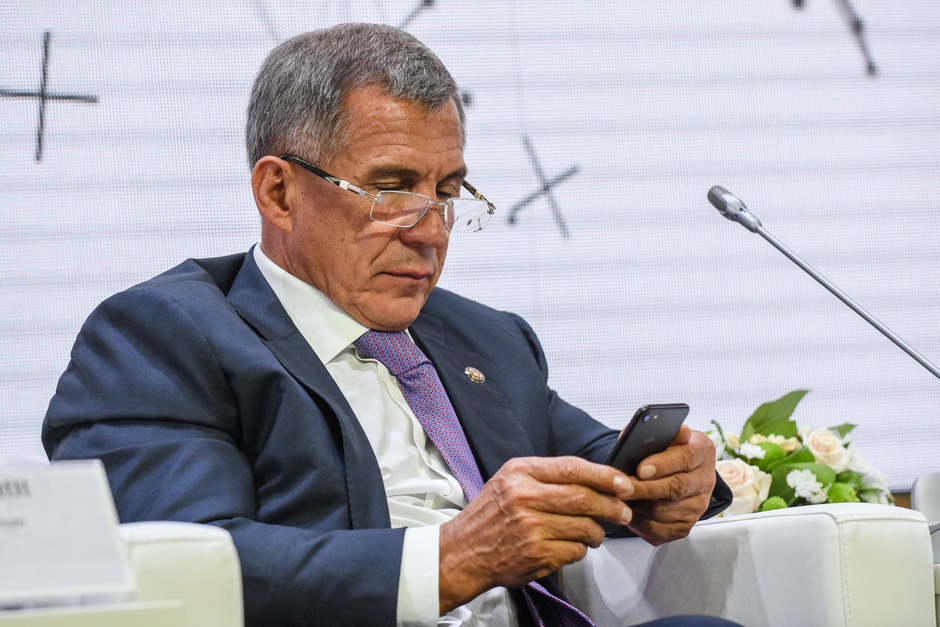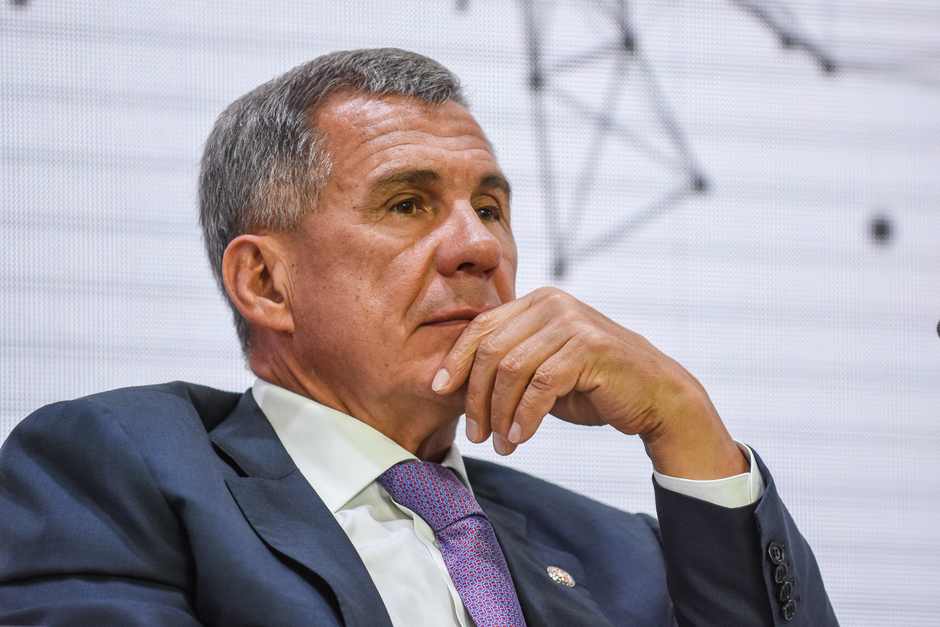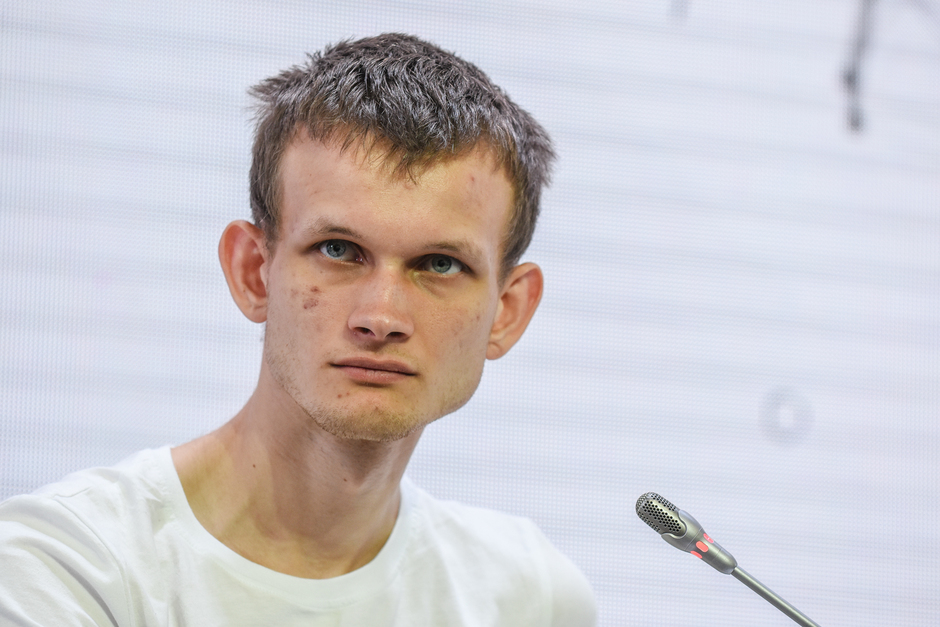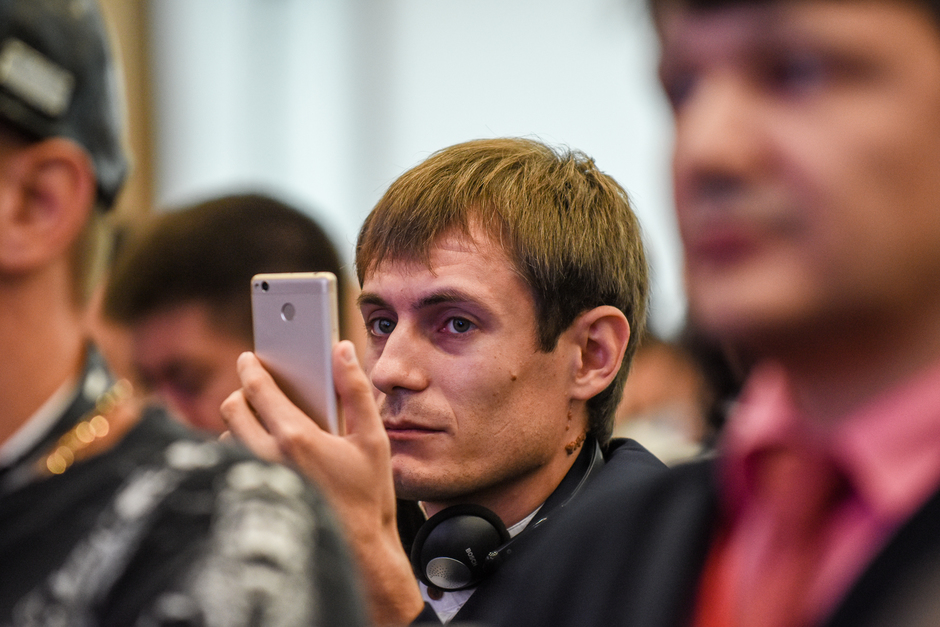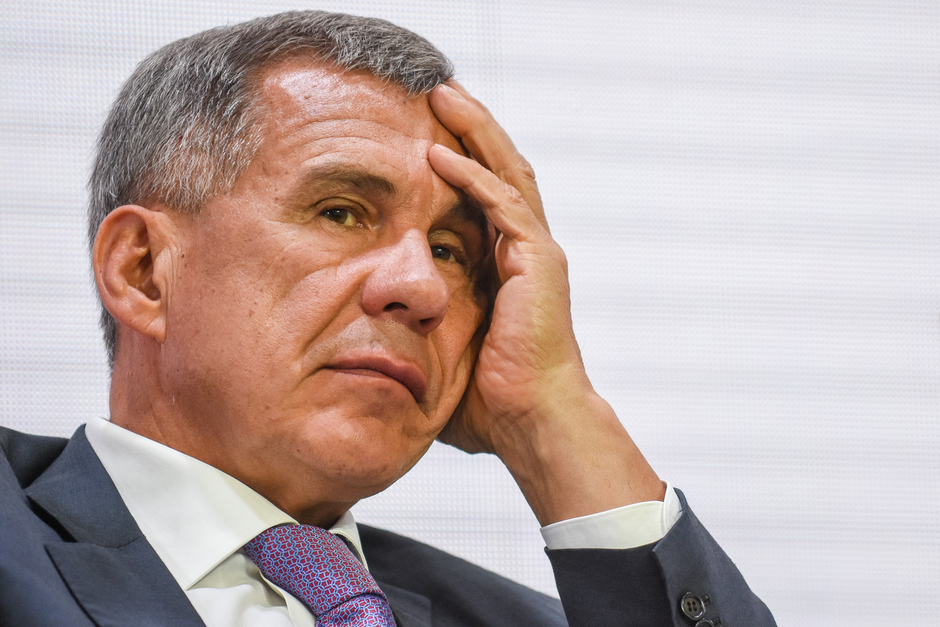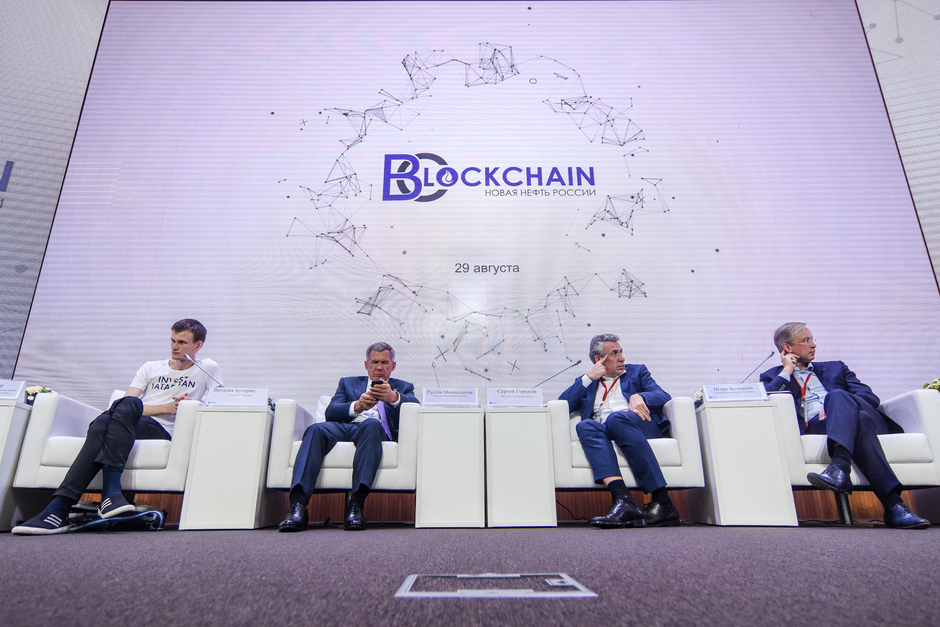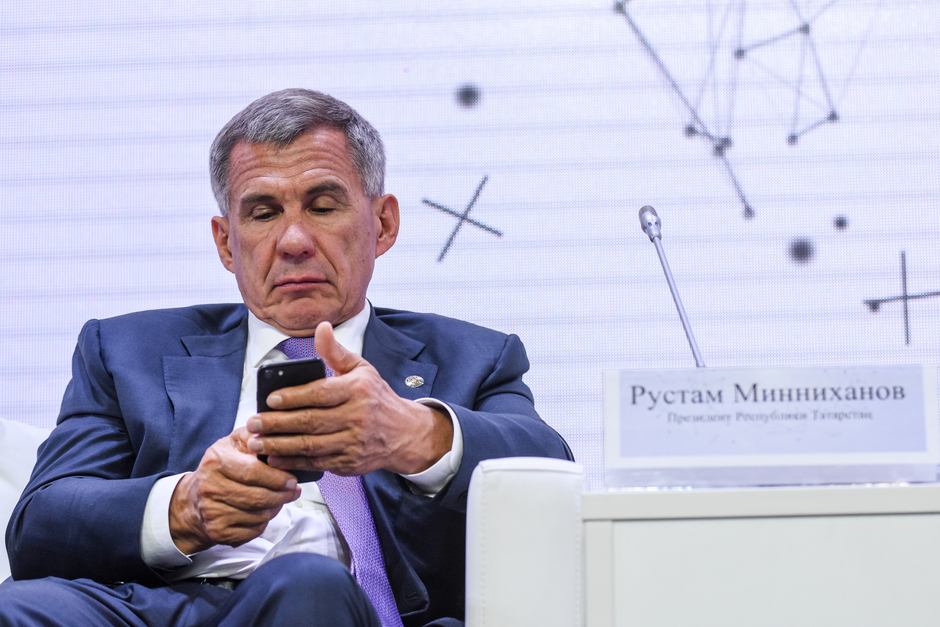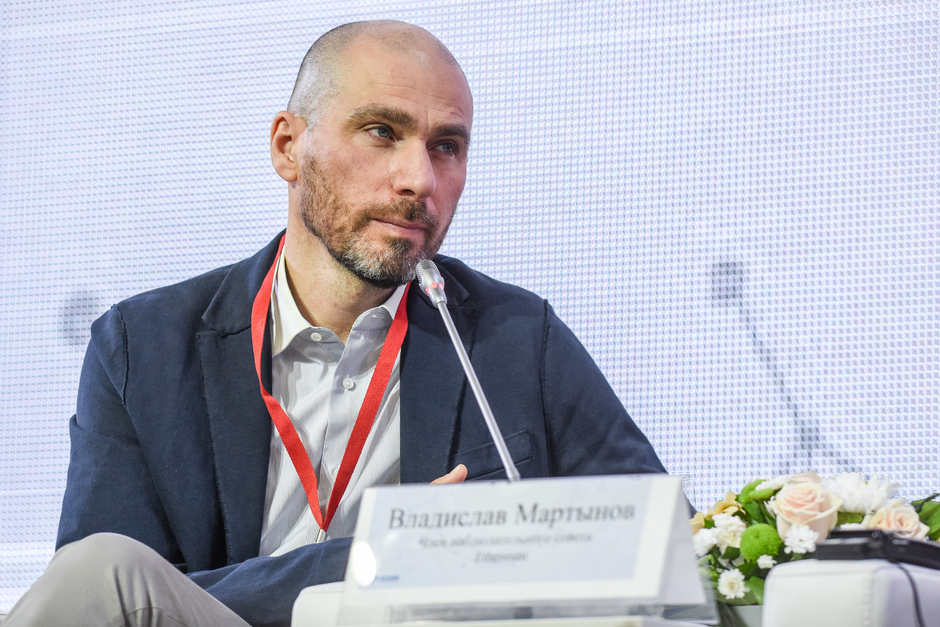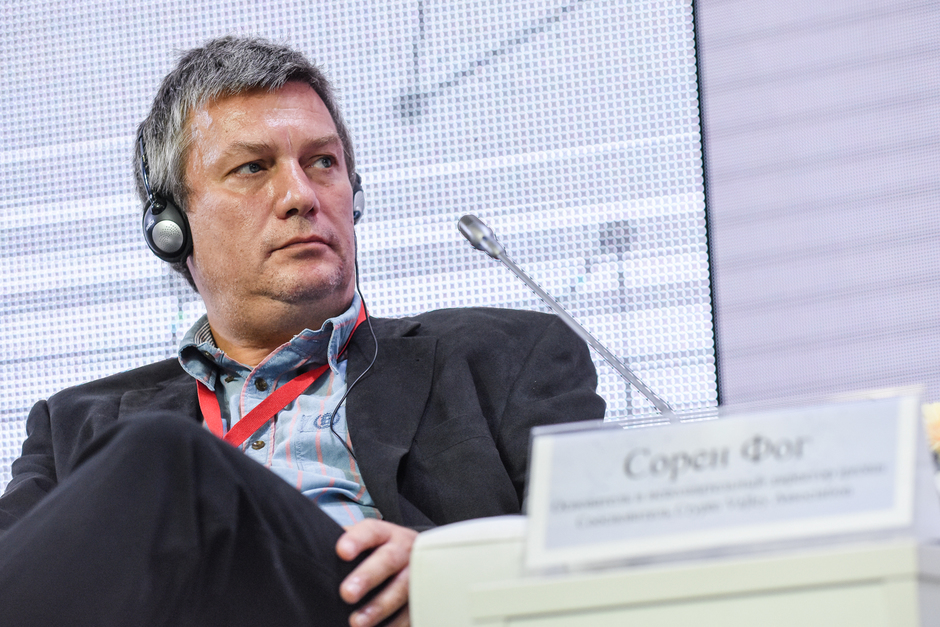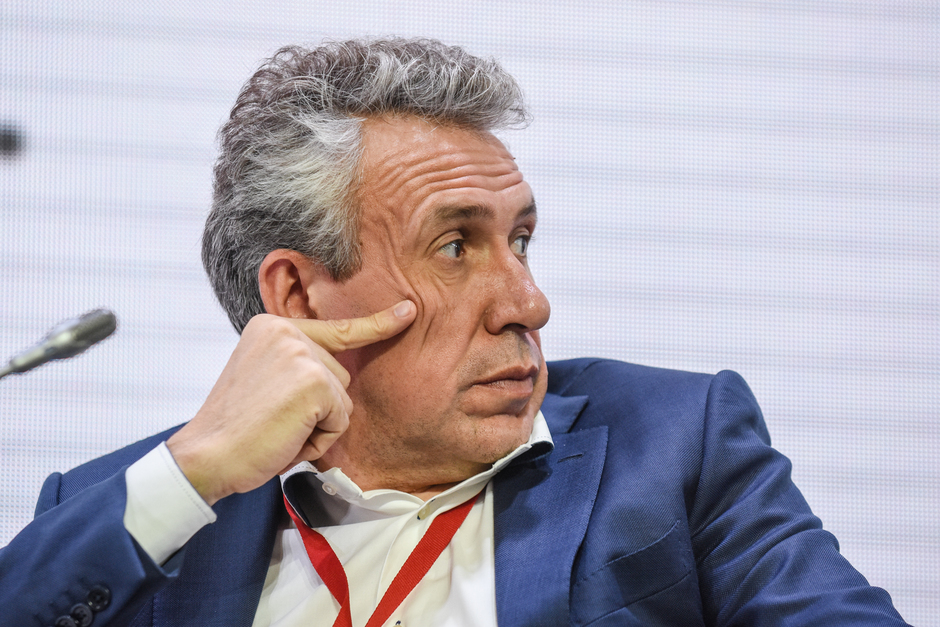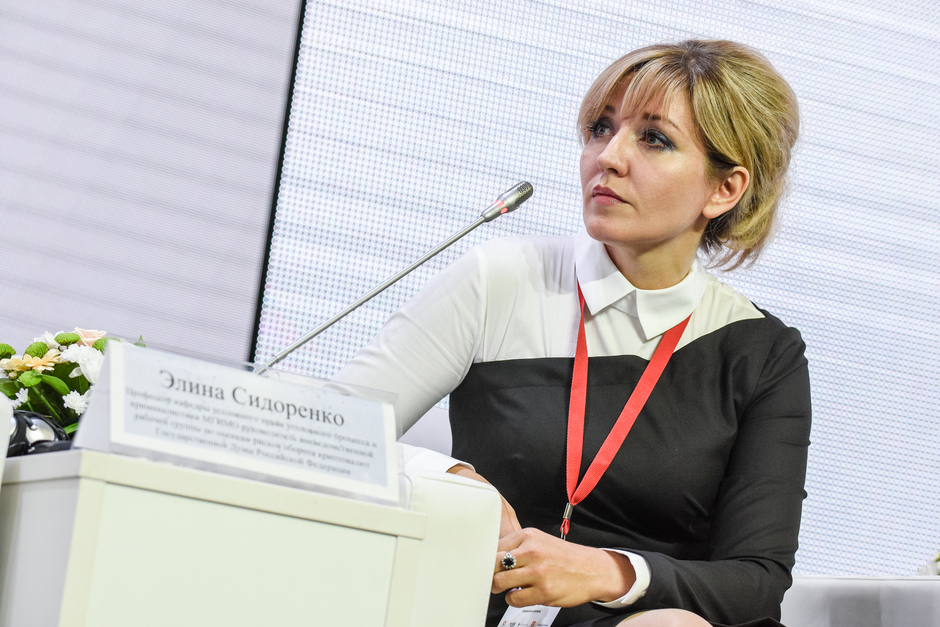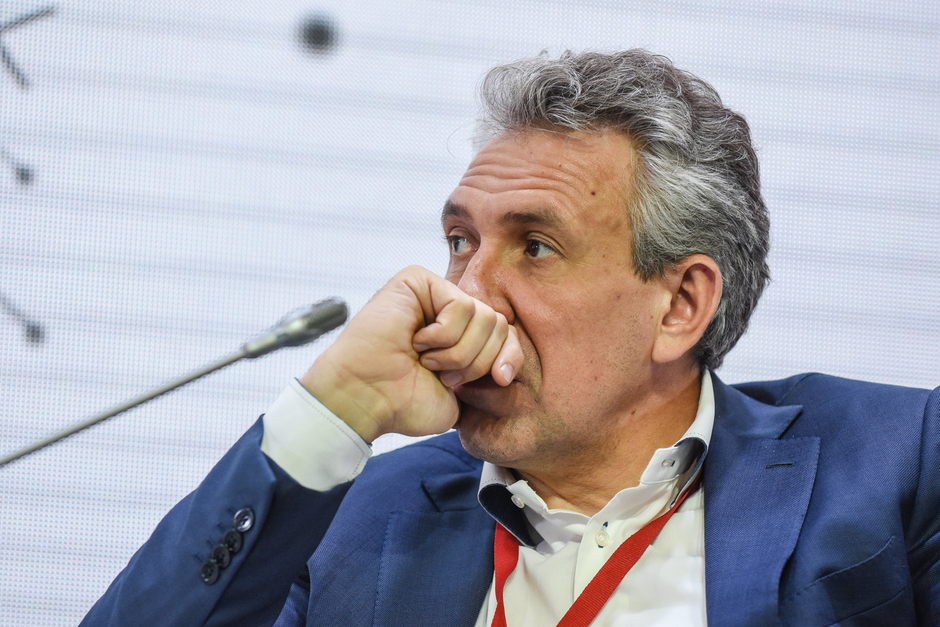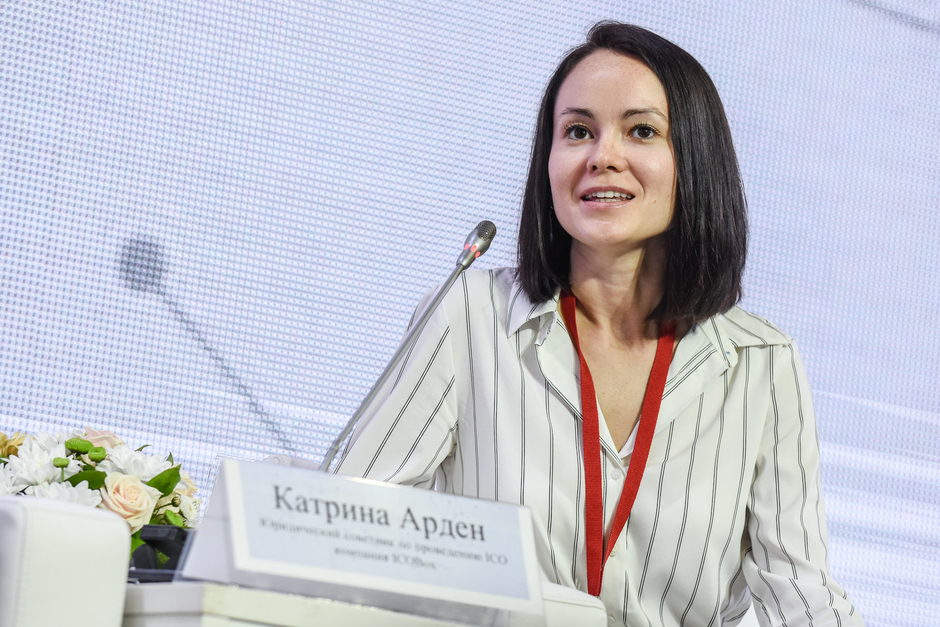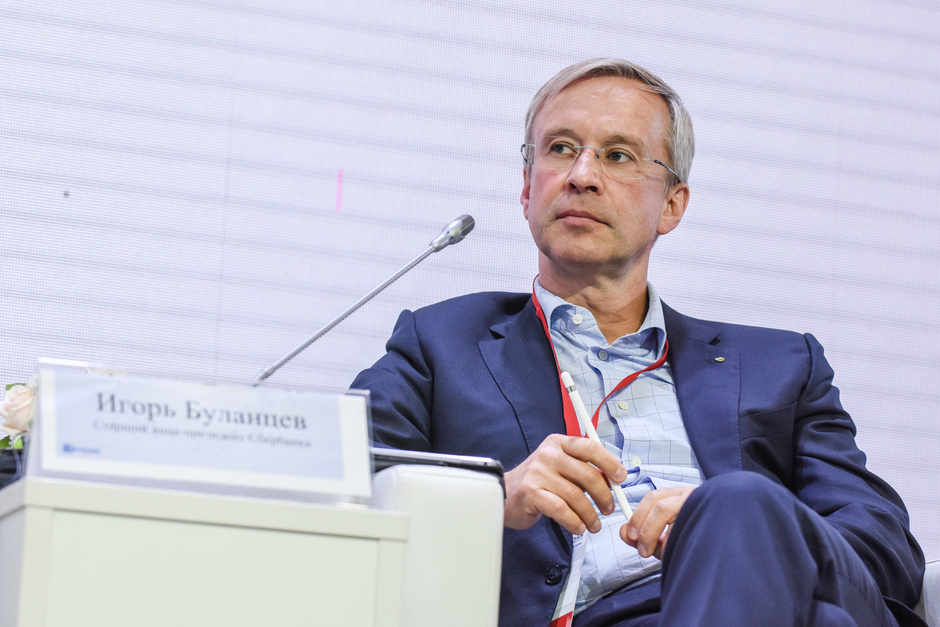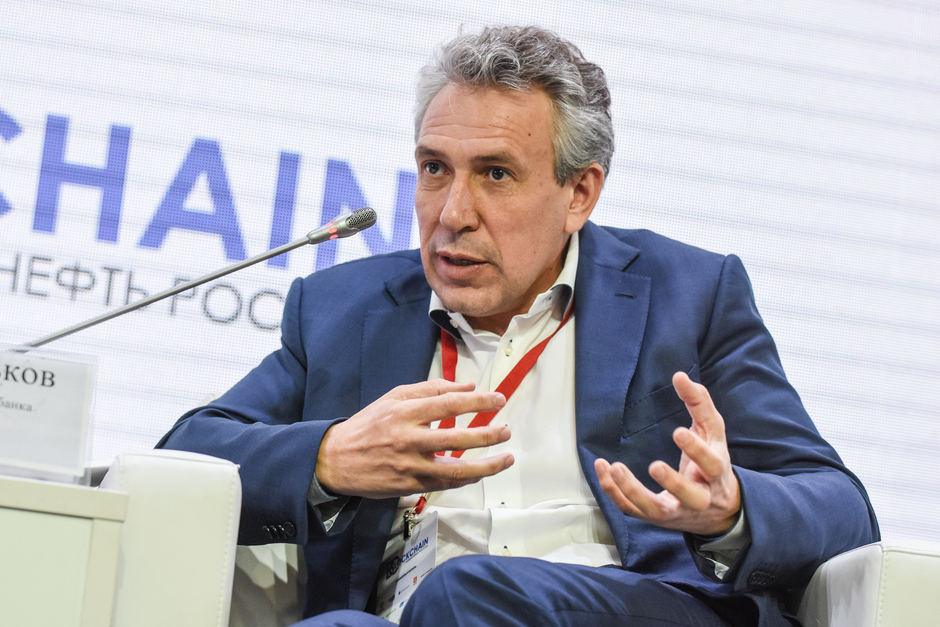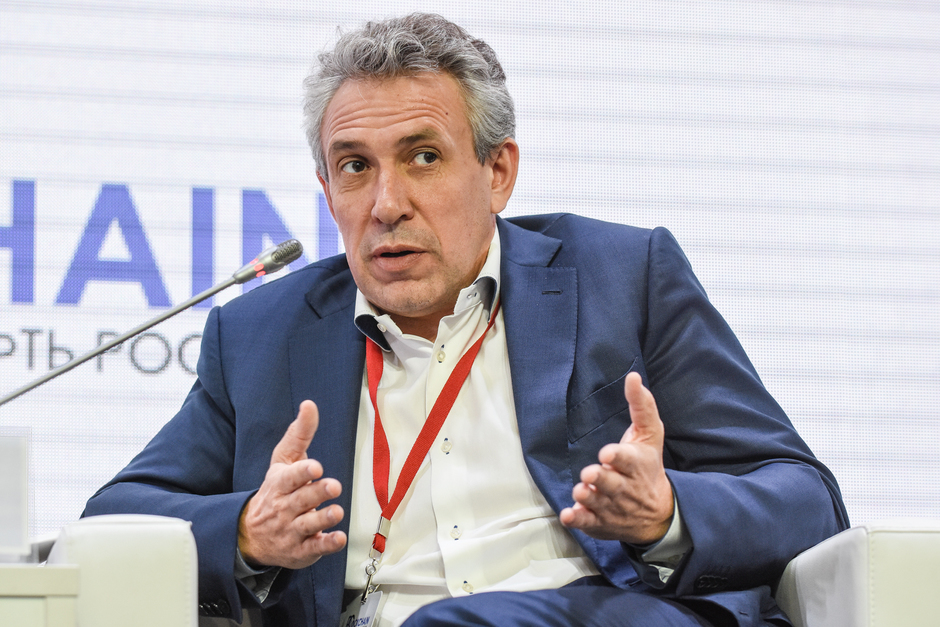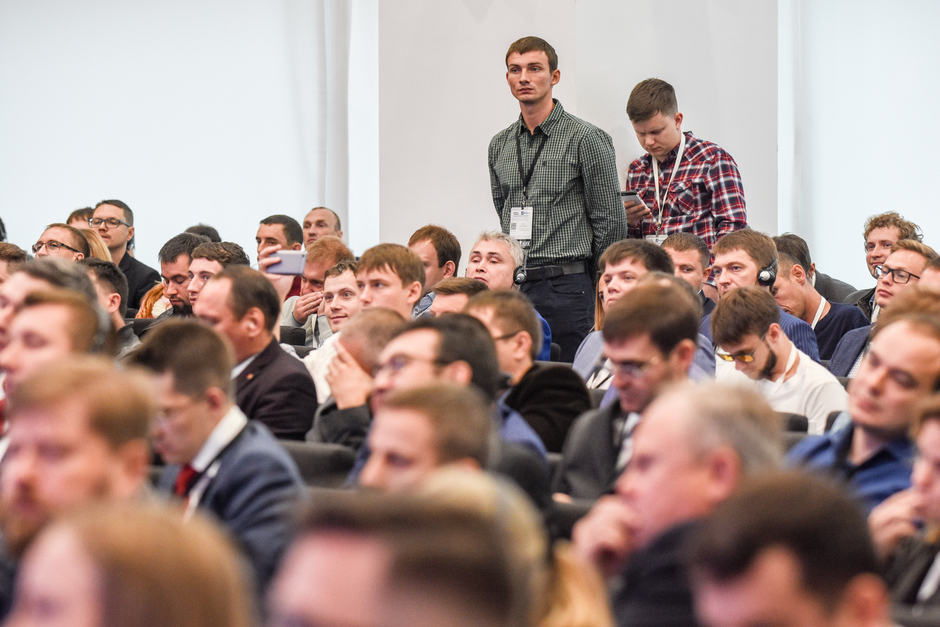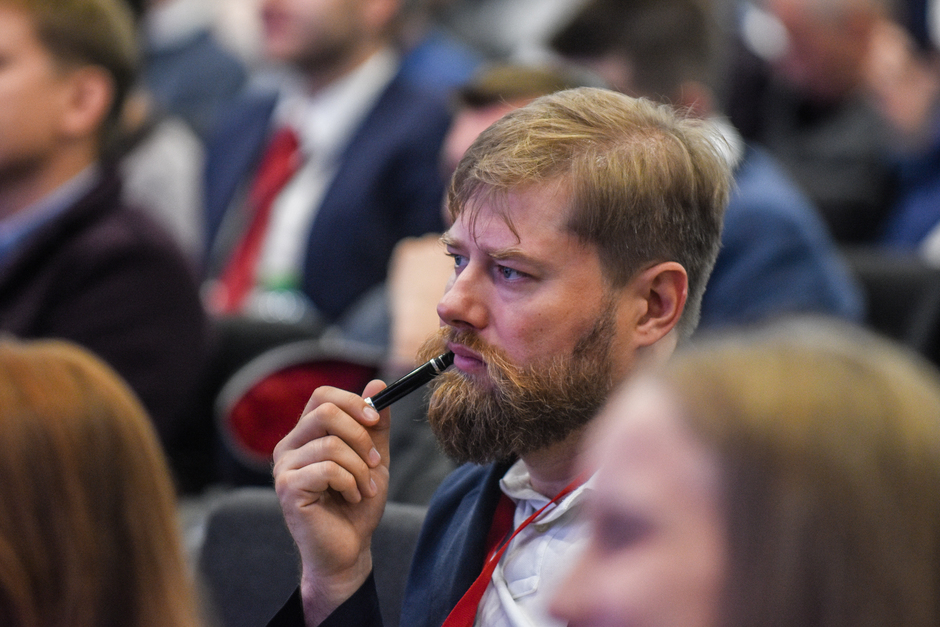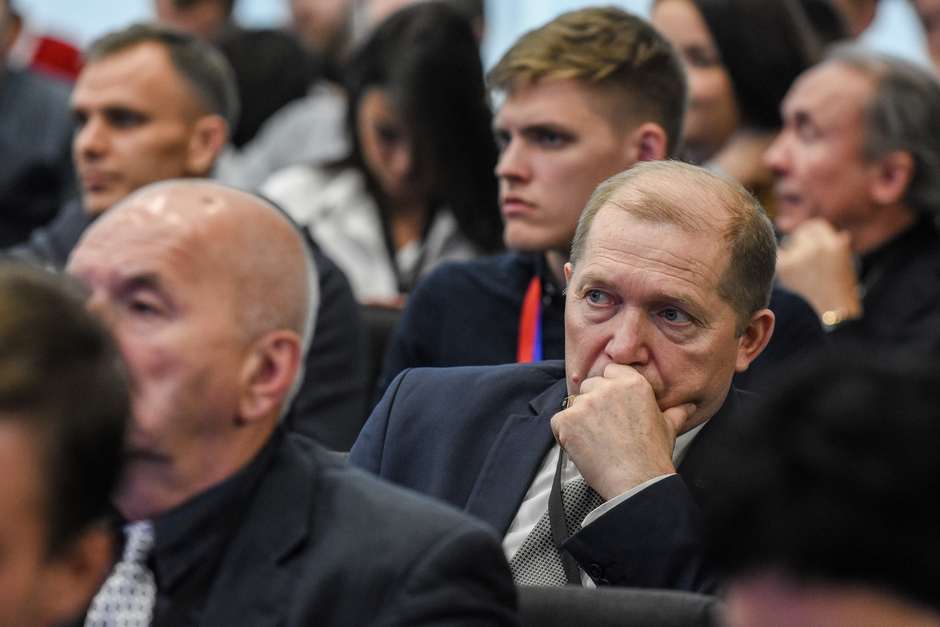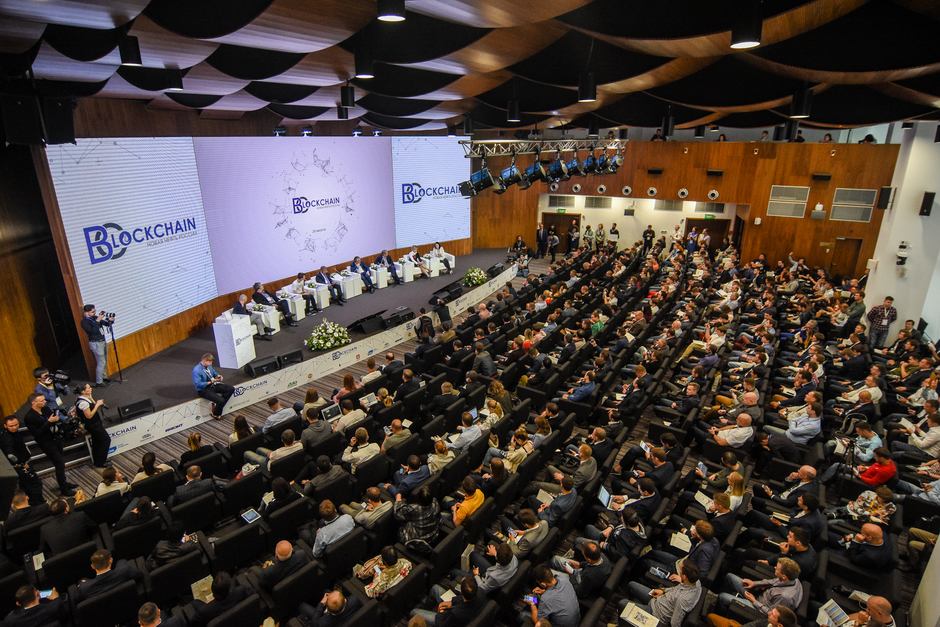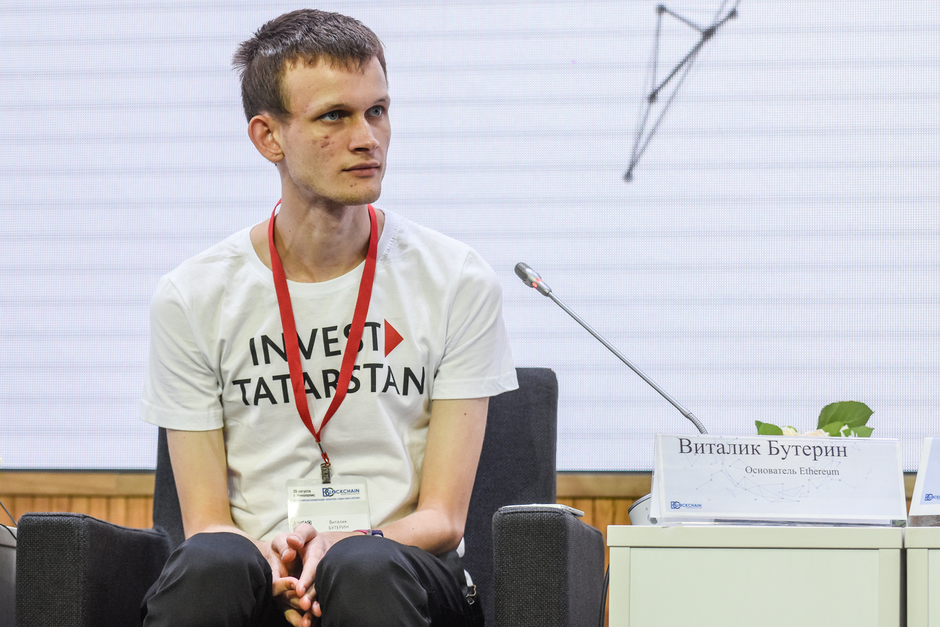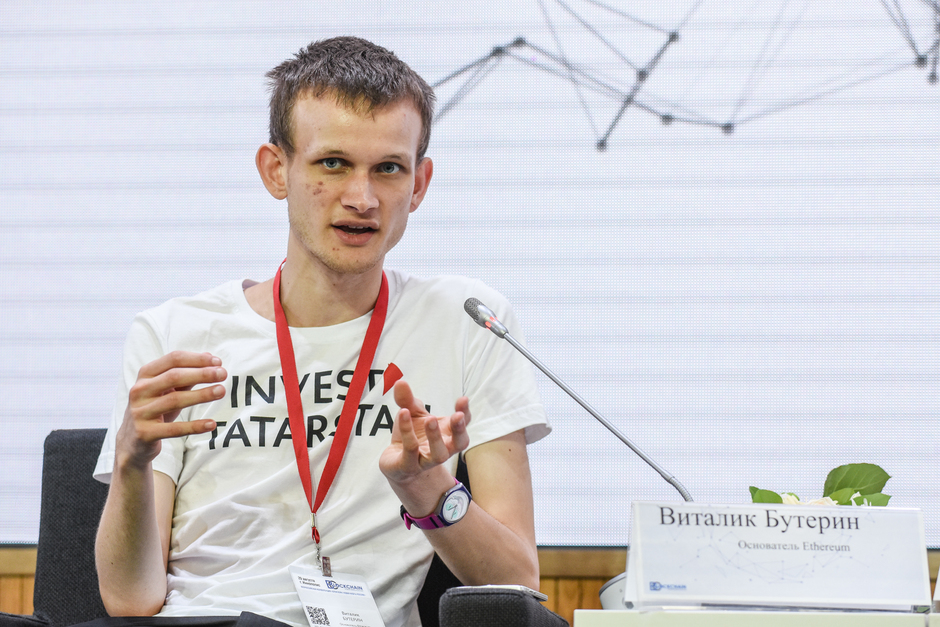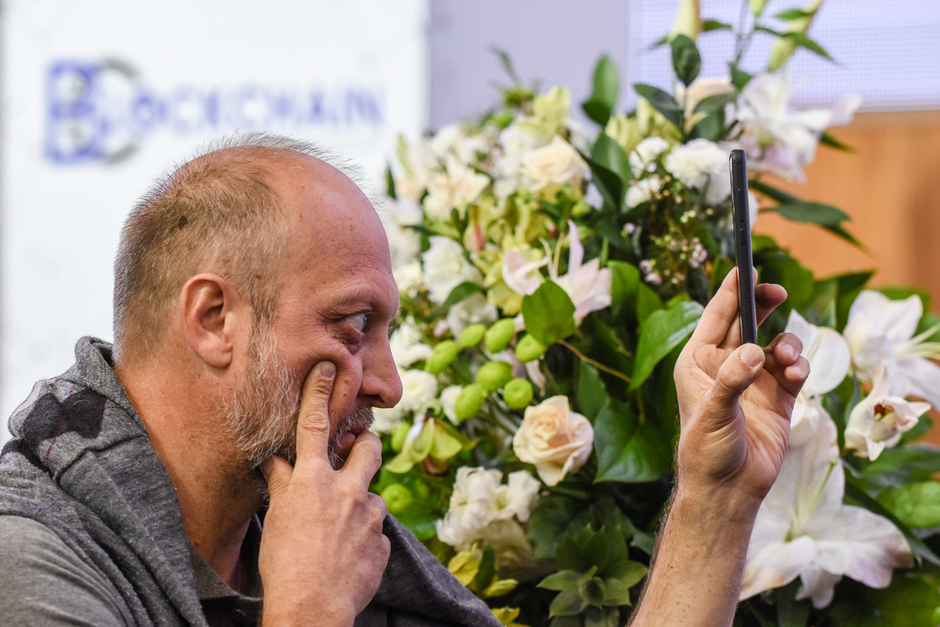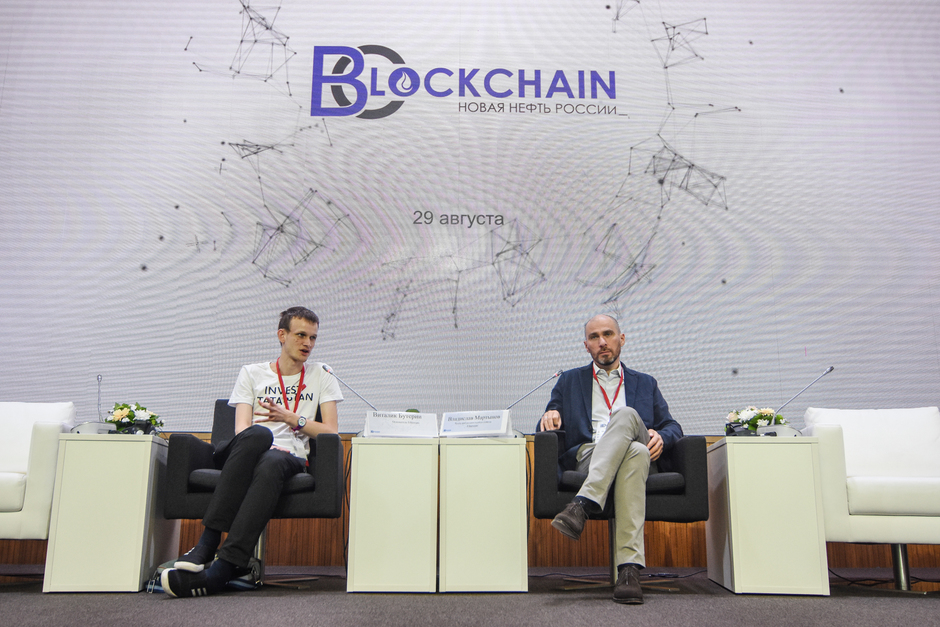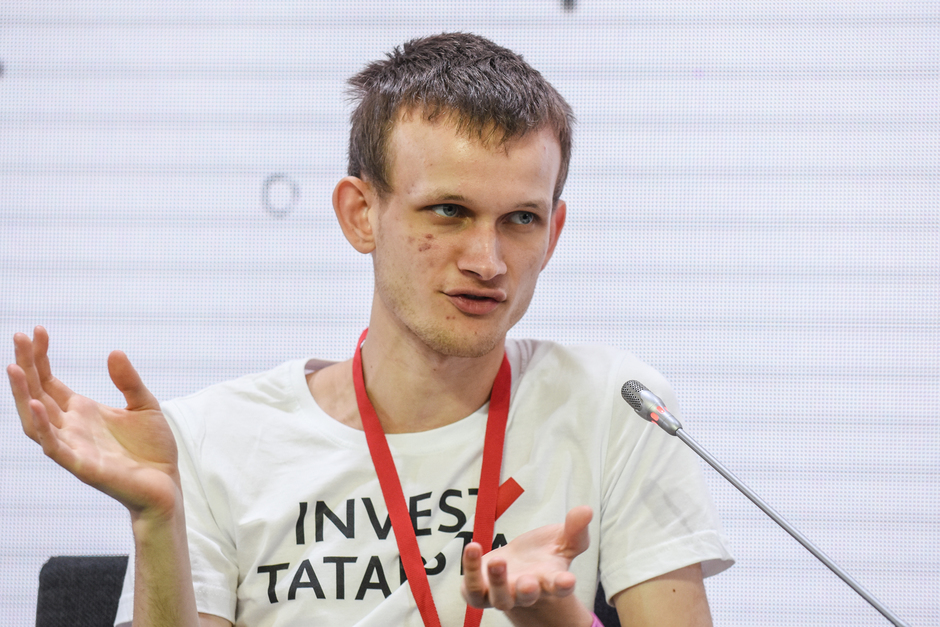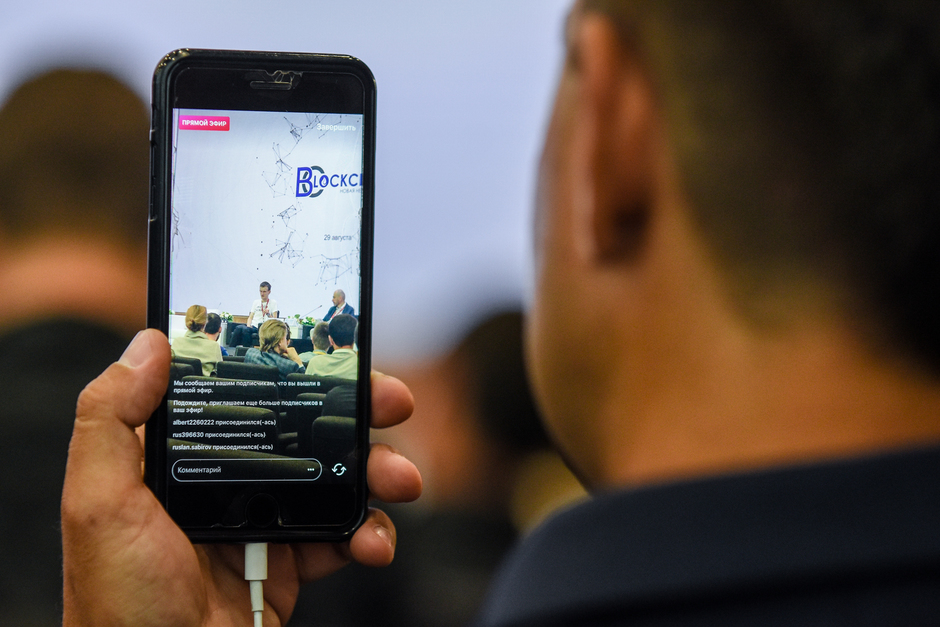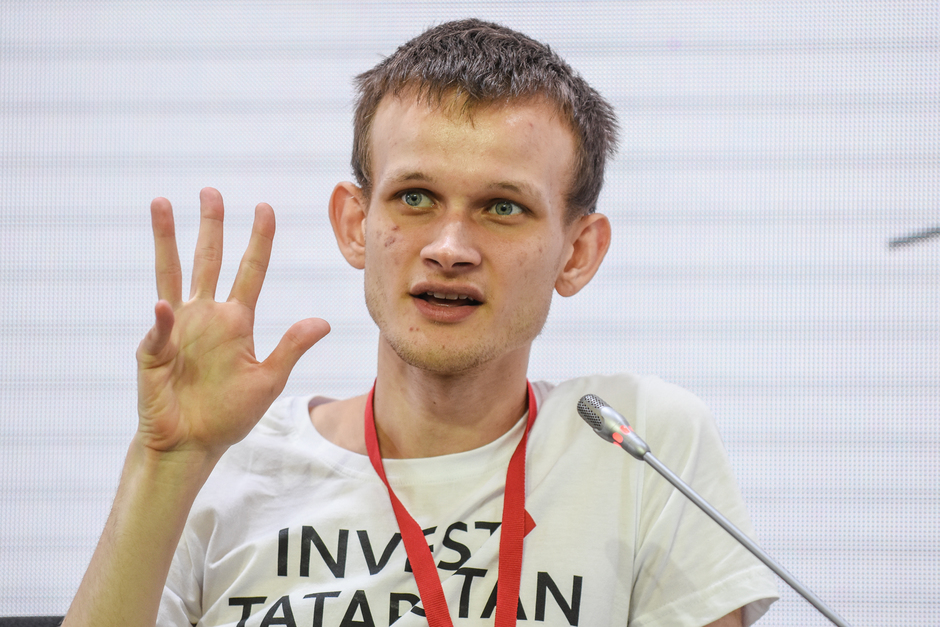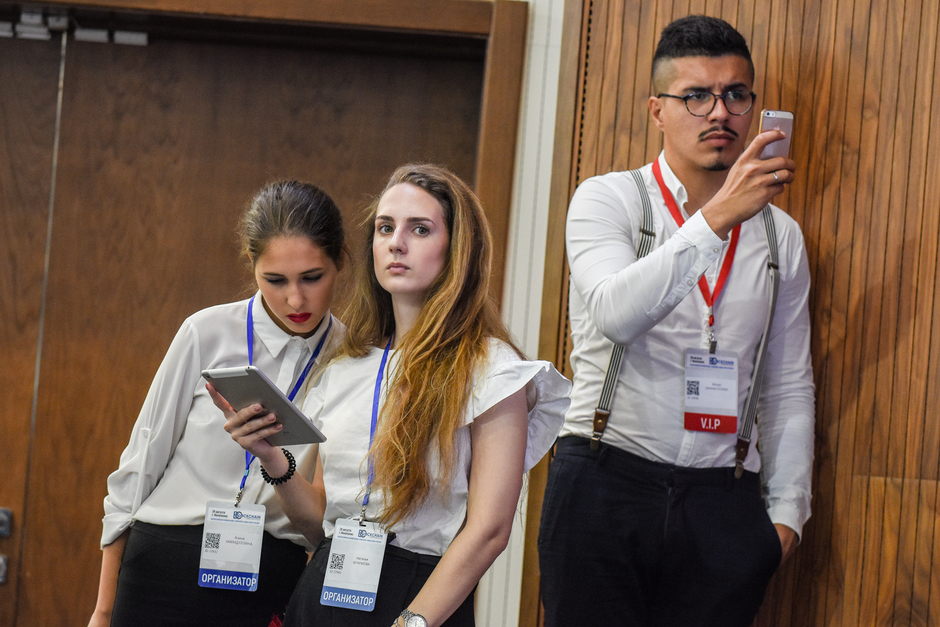Vitalik Buterin, Ethereum: ''The meeting with Vladimir Putin helped a lot, I think''
Minnikhanov in Innopolis promised not to give up oil, the founder of the cryptocurrency advertised Tatarstan and helped the guest from Kazakhstan to return savings
The all-Russian conference ''Blockchain: the new oil of Russia'' took place in Innopolis, it gathered on its platform 1,200 participants. At the event, the speakers talked about the problems in regulating blockchain and cryptocurrency to be solved by the government in the near future and tried to give an answer to the key question ''Will the blockchain be the new oil of Russia?'' The chief guest of the conference was a Canadian developer of Russian origin, the founder of Ethereum project Vitalik Buterin, who told about whether it was he who awakened in Vladimir Putin interest in blockchain and cryptocurrency, why there was a split of bitcoin and when the new technology will finally penetrate into our lives. Read the details in the report of Realnoe Vremya.
''We still do not quite understand many of the things you say, but we feel that it is something useful''
The central event of the conference was the plenary session with participation of President of Tatarstan Rustam Minnikhanov, the creator of Ethereum Vitalik Buterin, as well as representatives of VEB, Sberbank and lawyers specializing in cryptocurrency. All of them had to answer the question about whether blockchain technology is the new oil of Russia. The first to give an answer to the audience was the key guest of the event — Vitalik Buterin, coming to stage in a T-shirt with the inscription ''Invest Tatarstan''. This funny gesture did not remain without attention of the president, but about it a little later.
''Hey, do you hear me? I said I think yes — maybe,'' answered to the question about the new oil Buterin. ''This year I have been in Russia three times already and saw that now more people realize that in order to reach the next stage of development of the country we need to go in the direction of digital economy. Today's oil, its price goes down again, people think about new forms of energy, but there is no great future here. If this is not the future, what will be the future? I think that the economy of the 21st century will be mostly digital, where oil will be information. And one of the most interesting technologies of the digital economy is blockchain.''
Rustam Minnikhanov: ''Of course, we do not refuse from oil, but without digital economy and blockchain it is difficult to be competitive''
Then the answer was joined by Rustam Minnikhanov, who did not use ornate language, speaking out honestly and with humour, ''Many of the things you say, we still do not quite understand, but we feel that it is something useful. When a person has not enough knowledge, he must have a heightened sense of intuition.'' The audience interrupted the president's speech with applause and loud laughter. Someone even shouted ''Bravo!''
''Of course, we do not refuse from oil, but without digital economy and blockchain it is difficult to be competitive. We understand that this system exists, it is necessary to implement and Tatarstan is implementing many such projects. From our side there is full support, and you should give your ideas and we'll work together to implement them. Tatarstan is open for you: you can move, come — any form is acceptable. And… Wear our T-shirts!'' concluded the president.
Chairman of the Board of Vnesheconombank Sergey Gorkov voiced a slightly different point of view of what can be called the blockchain in modern Russia and also remembered about the crazy growth of bitcoin that happened this spring — in his opinion, this event triggered the digital revolution. ''If oil was the trend of the last 50 years (and probably still will be for a certain time), then the blockchain becomes a HYIP. If about the blockchain in the past year few people talked about, in the last six months, I think there was a revolution. Of course, the bitcoin course helped us with this revolution — it just soared in the last six months, and this of course added wind in our sails. It is important that Russia in the message of the president and the government recorded this HYIP, this HYIP is very important. Therefore, I propose to hyip like grown-ups and promote blockchain.''
The key principles of cryptocurrency vs state regulation
On the way to digitalization of the economy there is a lot of legal issues, first and foremost it is legalization of cryptocurrency. We will remind, three years ago, the Central Bank and Rosfinmonitoring in one voice stated that all the operations with cryptocurrency are considered a priori suspect transactions, but now the issue of legalization is maintained at a high level — it is enough to recall the recent statement of the first Deputy Chairman of Russian government Igor Shuvalov about cryptoruble. A similar position is shared by the head of the specially created interdepartmental group on risk assessment of cryptocurrency turnover of the State Duma of the Russian Federation Elina Sidorenko.
''In order to promote this technology to be the first, we should do one thing — to stop being afraid. We are facing a situation similar to the one that was in 2014, when the letter of the Central Bank and Rosfinmonitoring appeared. This ''fleur'' still haunts our developers. This hyipiness and the high demand of the blockchain intimidate us a little and confront us with new risks, but there is no escape — we need to turn to them and to find an optimal solution. The best solution seen now is legalization,'' said Sidorenko.
The minimum programme for the government as follows: it is necessary to introduce the legal status of the cryptocurrency and give it a name because today market participants are not protected. If an investor invests in something that has no legal nature, their money go down the drain — unfortunately, this formula is now prevalent. Besides, the creation of the electronic wallet and the download of the currency also can't protect a person — if he is stolen money from the wallet, he is simply has nowhere to go with the trouble. Another difficult point is the combination of the key principles of the cryptocurrency (decentralization and anonymity) with the need to fulfill the functions by the government.
''The technology is based on decentralization, and this is its main essence. In this situation, we should not question the decentralization of the technology. But when we talk about the law, we understand that it is always a regulator, public authority, and a priori it cannot be decentralized. When we are able to build between these two things a bridge, we will be able to solve the problem. I would also like to draw your attention to the fact that the blockchain has created a new legal reality. We are now observing a situation where not the law models the relationship but vice versa,'' said Elina Sidorenko.
The discussion was joined by Chairman of the Board of Vnesheconombank Sergey Gorkov, pointed directly to the fact that the existing law is lagging, ''The era of the new economy, but the law we have is basically built on the old formation. The law will have to change, but the question is, at what pace and how it will adapt. The fact that it lags is obvious. These changes were in the history of humanity several times, and based on the Napoleonic code, when it comes the industry 4.0… The big question: what is the law of the future?''
Now not only our counrty is facing the issue of regulation of blockchain and cryptocurrency market, as well as the first use of technology within government agencies. According to the data voiced by a lawyer at Blockchain Law Group Katrina Arden, in this matter Switzerland and Singapore clearly excelled, where there is some regulation of tokens. Not the easiest situation is being in the US, where the issue of taxation of transactions with cryptocurrency has been resolved, but at the same time, it still has not been determined what it actually is.
''Behind bitcoin there is a kind of strange for government agencies and banks group of people – it is difficult to understand whom to work with''
After the plenary session, the journalists and ordinary participants of the conference had an opportunity to ask questions to the young genius Vitalik Buterin. Someone asked the founder about an interesting watch on his wrist, to which he sheepishly replied ''Watch? They have a cat, a beautiful cat. Vitalik loves cats. I have also a bag.'' A guest from Kazakhstan told Vitalik about his sad story about how he forgot the password of his wallet and asked whether the speaker could help him. Buterin gave the participant a quick interrogation, found that he still remembered the password partially, and advised him of some mysterious expert from another end of the world.
Also, the founder of Ethereum outlined the reasons for the recent bitcoin fork that spawned Bitcoin Cash: ''Here, [in the bitcoin community] there were two groups with different opinions about what bitcoin is, why it exists and what its properties are most important. If we talk about the consequences, then, in my opinion, now, within each project there will be more harmony, and because of this, there will be more progress.''
In addition, Buterin answered the question of Realnoe Vremya about whether he personally influenced the appearance of President of Russia Vladimir Putin's interest in the topic of blockchain and cryptocurrency, ''As we've all seen here this morning ,it is not one person but many people at different levels of the Russian government are open to the idea of blockchain and the idea of cryptocurrency. Of course, the fact that we had a meeting with Putin, I think that really helped, but prior to that, he had meetings with many other people, and there will be more meetings.''
His colleague, member of the Supervisory Board of Ethereum Vladislav Martynov added that it is necessary to pay tribute to German Gref, who two years ago became interested in this technology and talked a lot about ''ether'' and Vitalik in the Russian media, and publicly told Vladimir Putin about Ethereum before the first arrival of the founders of cryptocurrency in Russia.
''It all started with this. After that we came to Russia in the first and second time and talked with lots of people. And we have reached the peak this year at SPIEF, when Mr Putin met with Vitalik. It seems to me that ''ether'' is so popular in Russia because here there is a clear leader — Vitalik Buterin, who's behind all this. And in bitcoin there is a kind of strange for government agencies and banks group of people – it is difficult to understand with whom to work with and talk on this subject,'' said Martynov.
